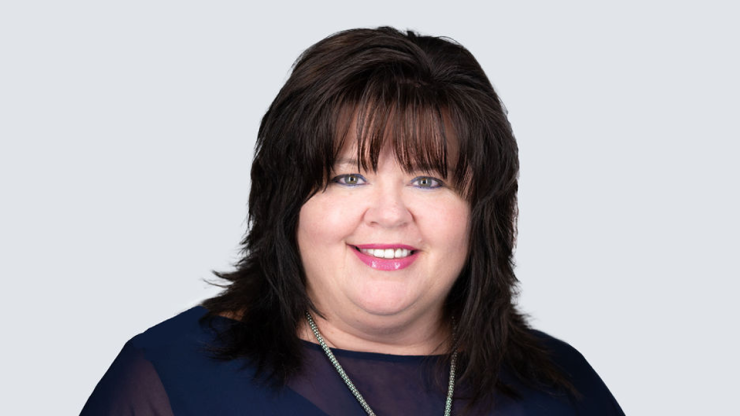
.Julie Celozzi was introduced to banking in high school, by way of a part-time job training program.
Celozzi, a regional branch manager for the Orlando, Florida-based Cogent Bank, started as a teller in the early 1990s, working a few afternoon shifts each week. After graduating, Celozzi, who grew up on Chicago's South Side, wasn't sure about college, but she knew she had enjoyed her bank job. She decided to seek a full-time position while weighing options.
"I decided I didn't want to go to college just yet," Celozzi said. "I wrote a resume and got a full-time job.
The choice proved career-defining.
"I started making real money and decided I didn't want to go to college at all," Celozzi said. "I just continued working my way through banking."
Learning the ropes
Over the next decade, at two Chicago-area community banks, Celozzi said she "learned the ropes" of bank operations, retail and commercial teller lines, new account opening and mortgage banking.
Seeking a change, Celozzi took a job at the Federal Reserve Bank of Chicago, "the mothership of all banks," as she termed it. The position involved night shifts and a lot of cash handling.
"I worked in the cash department," Celozzi said. "We would be certified with counterfeits on a quarterly basis. … For fun, we did counterfeit testing blindfolded, to see if we could pull out the [bogus] bills by touch."
It's a skill that's stayed with her. "I don't use a [detector pen]" to spot fakes, Celozzi said. "The retail stores and the grocery stores, they all use the brown marker."
It was cash that generated the attraction to banking in the first place. Cash handling "enthralled me the most," Celozzi said. "That's where I got hooked. Everybody loves cash."
Moving south
Celozzi joined Iberiabank after moving with her husband to Florida in 2009. Celozzi jumped to Cogent in July 2020, the same month the $85.1 billion-asset First Horizon Corp. in Memphis completed its acquisition of Iberiabank. The decision to leave Iberiabank, where Celozzi had advanced from new accounts to branch manager, revolved around size. "When a bigger bank took over, I knew that wasn't where I wanted to be," Celozzi said.
As regional manager, Celozzi oversees the operations of two Cogent branches, in Naples and Fort Myers. Celozzi, who has worked at community banks most of her three-decade banking career, said the $1.6 billion-asset Cogent strives to deliver a boutique experience. "We know every customer that comes in here," Celozzi said. "I love knowing about my customers, their families, their kids, where they go to school. It's really a family atmosphere."
Branch associates, including Celozzi, have personal cell phone numbers printed on their business cards, a touch Celozzi said none of her previous bank employers included. Customers "know they can call us at any time," Celozzi said. "I think a lot of them look at their bankers as part of their extended family. We are that close with customers."
It's been a simple, effective strategy. Where some banks
The lion's share of the credit for those results belongs to Celozzi and her office staff, Brandon Box, Cogent's Southwest Florida market president, said. "They are absolute rock stars," Box said.
Celozzi was Cogent's first retail hire in Southwest Florida. "She literally opened our Fort Myers office by herself," Box said. "She showed up every morning. Didn't take a vacation day and ran the whole branch herself."
"As the team has grown, she's found the right people and the right cultural fits, but her biggest impact is leading by example," Box added. "There's nobody at this bank that works harder and is more committed than Julie."
They still need us
Celozzi said that if she was offered opportunities to move into more senior positions, she would likely turn them down. "I'm hooked" on branch banking, Celozzi said. "I like the customers that come in. I like finding a fix for things. I like the operational side of things."
To be sure, Celozzi acknowledged branch traffic today is reduced from the levels she experienced in 1992, when she got her start in banking. But much of that traffic has simply moved onto the phones, she said.
"You can make a deposit over the phone and go to [an automated teller machine] for cash," Celozzi said. "We may not see the customer, but we still talk to them. … They still need us."






